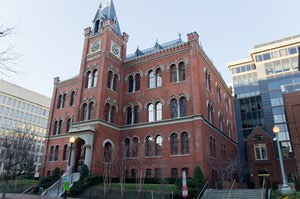Tags
4th of July, American Culture, American Narcissism, American Politics, Callousness, Damsel-in-Distress, Economic Inequality, Empty Gestures, Joe Trotter, Military, Misogyny, Nice, Obligatory, Polite, Racism, Sexism, Social Justice

Shaking Hands clipart, July 4, 2017. (http://hiveminer.com).
On this July 4th, I want to challenge the idea that Americans consider themselves a good-natured, warm-hearted, giving people. Or a wonderfully nice people, in other words. This, like so many other accepted clichés about American society, is nearly complete bullshit. Sure, many Americans are polite, or at least try to be. My former dissertation advisor Joe Trotter was very polite. Many of his colleagues and students said as much. But, as my couple dozen blog posts about Trotter can attest, he was hardly a nice person, or warm-hearted, or giving, or caring. Heck, at times, especially in my final year as a student and PhD candidate, Trotter wasn’t even professional or polite.
Polite is when a person doesn’t comment on one’s sudden fall into poverty or homelessness. Polite is holding open a door for someone loaded down with bags of groceries. Polite is an important person availing themselves to meeting with another important person for networking purposes. None of these things are nice, indicative of a good nature, a warm heart, or a giving person. Because, being polite is an obligation, and in American customs and laws, even obligatory. Four cars stopping at all four all-way stop signs at an intersection and going in the order of which one stopped the soonest is both polite and a traffic law. One may smile at another driver as one passes through the intersection, but this is a polite nicety, and not really a sign of a nice American at all.
Here’s where the difference between American politeness and truly being nice hits a brick wall. Our culture, our politics, our religious beliefs, our proclaiming of every holiday as a celebration of military personnel allegedly “fighting for our freedom.” They reflect this obligatory American politeness. As a nation, Americans claim to want to do something about poverty, and want to wish away racism, sexism, and homophobia. Yet in how Americans vote and in the music Americans listen to, there is almost nothing nice about Americans in action.

Nice, France is a city on the French Riviera (and not an American practice), September 21, 2011. (Tobi 87 via Wikipedia). Released to public domain via CC-SA-3.0.
This is not just about 45 and the GOP majorities in Congress. In locale after locale, actions like acquitting police officers for murdering Black men and women, reducing the number of abortion clinics, and cutting taxes so the poor and homeless don’t have enough food, shows how un-nice the American people are. American un-niceness exists in the policies drawn up or enacted by those for whom millions voted, from repealing Obamacare to the Muslim Ban. These policies may reflect an American politeness, but they also reflect a cruelty that has all too often been a part of American culture.
As someone who once considered himself “a nice guy,” I recognize that the correct term was always polite. For being “a nice guy” merely meant not revealing my true thoughts toward and about women, all while being polite enough to hold a door open or to try to help a damsel-in-distress. What I was being was a sexist asshole, having not yet challenged my assumptions about women and about myself and my views about women and the rampant sexism and misogyny in American culture.
There are far too many Americans who think that their Christian politeness is so much more than obligatory and vapid gestures that mean little-to-nothing in reality. For this July 4th, the idea of honoring the military with absolutist statements about freedom as so automatic that it sickens me. Especially considering the number of active duty service people and veterans suffering from PTSD, addiction, or whom commit domestic violence. Americans don’t act nice around these ugly issues. Americans don’t volunteer, don’t call 911, and don’t pressure city councils, county commissioners, and state legislatures enough to deal with these issues holistically. It would be nice if more Americans did.
Americans ought to ban being polite. Polite perpetuates racism and economic inequalities. But being nice means doing something about it, protesting, volunteering, speaking truth to power, using America’s alleged freedoms to confront folks in one’s life about their comfortability with various forms of oppression. How nice would that be!















